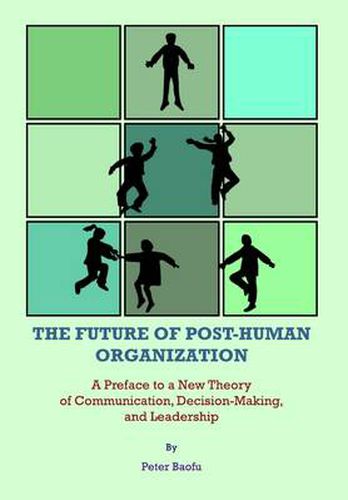Readings Newsletter
Become a Readings Member to make your shopping experience even easier.
Sign in or sign up for free!
You’re not far away from qualifying for FREE standard shipping within Australia
You’ve qualified for FREE standard shipping within Australia
The cart is loading…






What exactly makes the nature of organizations so miracular that their very purpose is to achieve performance and that it is now regarded, in this capitalist age of ours, as the central aim to be both possible and desirable for any organization?After all, there is simply no lack of organizations which achieve performance with questionable means and goals-be they about greed and excess in the corporate world, or evil and injustice in the public sphere, just to cite two main examples (although there are others too, of course).Contrary to the conventional wisdom preciously accepted by many contemporaries, this obsessive craze for organizational performance is fast becoming a seductive trend, such that the dark sides of organizational performance have yet to be systematically understood and that its very purpose is neither possible nor desirable to the extent that its proponents would like us to believe.Needless to say, this is not to suggest that the purpose of organizations is to reject performance, or that the literature in organizational studies (and other related fields like political science, media studies, and business management, for example) hitherto existing in history are full of scholarly worthlessness. The aim of this book, however, is to provide an alternative (better) way to understand the nature of organization, in special relation to communication, decision-making, and leadership-while learning from different views in the literature, without favoring any one of them (nor integrating them), and, in the end, transcending them in a new direction not thought before.This seminal project, if successful, will radically change the way that we think about the nature of organization, from the combined perspectives of the mind, nature, society, and culture, with enormous implications for the human future and what I originally called its post-human fate.
$9.00 standard shipping within Australia
FREE standard shipping within Australia for orders over $100.00
Express & International shipping calculated at checkout
What exactly makes the nature of organizations so miracular that their very purpose is to achieve performance and that it is now regarded, in this capitalist age of ours, as the central aim to be both possible and desirable for any organization?After all, there is simply no lack of organizations which achieve performance with questionable means and goals-be they about greed and excess in the corporate world, or evil and injustice in the public sphere, just to cite two main examples (although there are others too, of course).Contrary to the conventional wisdom preciously accepted by many contemporaries, this obsessive craze for organizational performance is fast becoming a seductive trend, such that the dark sides of organizational performance have yet to be systematically understood and that its very purpose is neither possible nor desirable to the extent that its proponents would like us to believe.Needless to say, this is not to suggest that the purpose of organizations is to reject performance, or that the literature in organizational studies (and other related fields like political science, media studies, and business management, for example) hitherto existing in history are full of scholarly worthlessness. The aim of this book, however, is to provide an alternative (better) way to understand the nature of organization, in special relation to communication, decision-making, and leadership-while learning from different views in the literature, without favoring any one of them (nor integrating them), and, in the end, transcending them in a new direction not thought before.This seminal project, if successful, will radically change the way that we think about the nature of organization, from the combined perspectives of the mind, nature, society, and culture, with enormous implications for the human future and what I originally called its post-human fate.